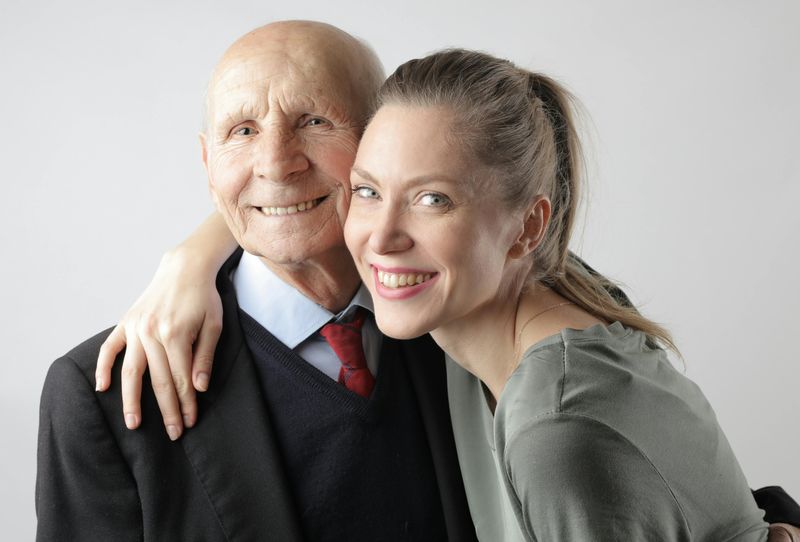Growing up doesn’t mean growing apart, but it does change how parents and adult children relate to each other. Many parents struggle to adjust their approach as their children mature, leading to tension and misunderstandings. The transition from parenting a child to relating to an adult requires new skills and perspectives from both generations.
1. We’re Not Kids Anymore
Adult children need the freedom to chart their own course without constant supervision or intervention. When parents continue treating their 30-year-old like they’re 13, it creates frustration and damages trust.
Many parents don’t realize how their well-intentioned advice can feel like micromanagement. The same protective instincts that kept us safe as children can suffocate us as adults.
Recognizing our autonomy isn’t about pushing parents away—it’s about evolving the relationship. Parents who support independence often find their adult children actually seek their counsel more frequently, but on different terms.
2. Our Choices May Differ from Yours
The career paths, living arrangements, and relationship choices that worked for previous generations might not align with today’s realities. Adult children often feel immense pressure when parents measure success using outdated yardsticks.
Different doesn’t equal wrong. Many parents struggle to separate their own expectations from their children’s happiness, creating unnecessary conflict when life trajectories diverge.
Understanding that your adult child has formed values based on their unique experiences opens doors to genuine connection.
3. We Still Need Support, Not Control
There’s a fine line between helpful guidance and overbearing control that many parents unintentionally cross. Asking “How can I help?” instead of jumping in with solutions makes all the difference.
The most valuable support often comes without strings attached. When parents offer assistance without expectations of compliance or gratitude, they create space for authentic connection rather than obligation-based interactions.
4. We Make Mistakes, Just Like You Did
Nobody reaches adulthood with perfect judgment. The missteps adult children make aren’t evidence of poor parenting—they’re part of being human. Parents sometimes forget their own learning curves when watching their children navigate challenges.
The most growth-promoting response to adult children’s mistakes isn’t “I told you so” but “What did you learn?” Allowing space for natural consequences builds resilience faster than protection or criticism.
5. We Want to Be Heard, Not Judged
The quickest way to shut down communication with adult children is responding with criticism rather than curiosity. Many parents don’t realize how their facial expressions and immediate reactions create walls between generations.
Active listening—without preparing counterarguments or solutions—builds bridges that last. Adult children share more with parents who demonstrate they can handle difficult topics without judgment.
6. Our Mental Health Matters
When parents minimize anxiety, depression, or burnout, they inadvertently push their children away during vulnerable moments. The most supportive response isn’t “just cheer up” but “I’m here however you need me.”
Many parents feel helpless or personally responsible when their adult children struggle emotionally. Learning to support without solving or blaming creates space for healing and strengthens family bonds during difficult times.
7. Boundaries Are Healthy, Not Offensive
When adult children establish boundaries around visits, phone calls, or personal topics, they’re not rejecting their parents—they’re managing their wellbeing. Many parents mistakenly interpret boundaries as personal attacks rather than necessary self-care.
Healthy families respect each other’s limits without taking offense. The strongest parent-child relationships involve clear communication about needs and expectations rather than assumption or obligation.
8. We Have Different Priorities Now
The milestones that defined success for previous generations—homeownership, marriage, children—may not top the priority list for today’s adults. Career development, experiences, personal growth, or alternative lifestyles often take precedence in ways parents might not understand.
Financial security looks different for younger generations facing unique economic challenges. What appears like poor planning to parents might actually be strategic adaptation to changing realities.
Appreciating your child’s values, even when different from your own, validates their identity and strengthens your connection.
9. We May Need Space from Family
Stepping back from family gatherings or traditions isn’t necessarily a rejection of family values. Adult children sometimes need distance to establish their identities and process complex family dynamics.
Parents who respond to requests for space with guilt or anger often drive their children further away. The most connected families allow breathing room without making it personal.
10. We’re Still Grateful for Your Efforts
Not expressing appreciation constantly doesn’t mean adult children don’t value their parents’ sacrifices. Many struggle to articulate gratitude while establishing independence.
Parents who need verbal affirmation might miss the subtle ways their adult children express thanks. Looking beyond words to recognize how your influence shapes your child’s values and choices reveals the profound impact you’ve had.
11. We Learn from Your Mistakes, Not Just Your Advice
How parents handle their own failures teaches more than their successes ever could. The willingness to acknowledge past parenting missteps creates profound trust. “I wish I’d handled that differently” opens doors that “You should do it this way” keeps firmly closed.
Many parents struggle to admit fallibility, fearing it undermines their authority. Actually, vulnerability demonstrates strength and models healthy self-reflection—a gift that continues giving as adult children navigate their own imperfect journeys.
12. Parenting Us Wasn’t Perfect, But That’s Okay
Perfect parenting doesn’t exist. Adult children increasingly recognize that their parents did their best with the tools and knowledge available to them at the time.
Acknowledging past hurts without dwelling on them allows healing for both generations. The most meaningful conversations often begin with “I understand you were doing your best” and end with mutual forgiveness.
Many adult children have complicated feelings about their upbringing—appreciation mixed with recognition of what could have been better. Parents who can hear these mixed emotions without defensiveness create space for authentic relationships that acknowledge both strengths and wounds.
13. We Value Your Happiness Too
Adult children worry about their aging parents but often don’t know how to help without overstepping. Many parents hide struggles to avoid burdening their children, creating distance rather than connection.
Parents who share their own challenges, dreams, and needs create space for reciprocal care. Being honest about what would make you happier gives your adult child the chance to support you in meaningful ways.
14. We Need Emotional Honesty
Authentic relationships require emotional transparency from both generations. Many families maintain surface-level connections, avoiding deeper conversations about feelings, fears, or needs.
Adult children crave real insight into their parents’ inner lives. Knowing your struggles, hopes, and genuine thoughts creates bridges stronger than small talk ever could.
The families who navigate changing relationships most successfully share not just holiday meals but also honest conversations about what matters most to each generation.
15. We Love You Even When We Disagree
Conflict doesn’t diminish love—it’s part of any meaningful relationship.
Healthy families can hold different opinions while maintaining strong connections. The most resilient parent-child relationships embrace the tension of differing perspectives without questioning underlying affection.
Many parents take disagreement personally, missing the opportunity to model how loving relationships navigate conflict. Showing that you can listen to opposing viewpoints without withdrawing love teaches adult children more about healthy relationships than perfect harmony ever could.















